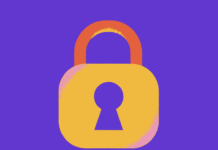Today nearly every online and offline businesses, organization, and independent bloggers have their own websites. Websites are used for interacting with customers, providing services, displaying information, and much more. However, the question is ‘Are the websites secure?’ Well, most of the websites are not safe from Hackers because they are not secured properly. Today in this article you will learn How to Secure and Protect your Website from Hackers and Hacking Attacks. Having a secure website is very important because a website represents your organization, brand, and company to online users around the globe.
Hackers are always on the hunt for vulnerable servers and websites. The reason behind is so that they can take over your server and use to server illegal files, send spam, and so on. There are some essential tips that you can implement to secure your site.

Contents
7 Ways on How You Can Keep Your Website Safe from Hacking and Viruses
Let’s get started with the website security guide:
Keep your core files and platform updated
You need to make sure all the software is up-to-date, and the latest version is installed always. This is not just the website, also your operating system / PC. Also depending on what platform your website is built on, or if it’s using a CMS (Content Management System) or a forum software make sure it is being updated regularly. This is not the case if you are using a managed hosting package because they do all the patching and updating for you.
CMS like WordPress, Drupal, Joomla, and many others show you an update notification for any new patches on the dashboard when you log in. There are many tools available out which include RubyGems, npm, and a few others that notify you of security vulnerabilities.
Strong passwords everywhere
We all should use strong passwords which are complex and long. But many of us don’t. It is vital to use a strong password for your server login and your website admin dashboard. You should also enforce a strong password requirement for your site users. This could be along the lines of having a minimum of 8 characters, uppercase and lowercase letters, etc. This will benefit the security of your users.
If you store passwords on your server make sure they are encrypted. As a good practice, you should always use SHA which is a one-way hashing algorithm. An extra bonus would be to salt all the passwords and have a new salt for each of the passwords.
Be Aware: There are various brute force tools out there that make use of latest password lists which can make cracking passwords a very easy task.
Use HTTPS (Hypertext Transfer Protocol Secure)
This is a good security protocol that protects your information. It gives you full peace of mind that you are connected to the server you expected to be connected to. Also, all the data sent between you and the webserver is encrypted and cannot be intercepted. If your website holds any private information of customers, you should start using HTTPS. It should be available on all important pages that ask for details and confidential data including login pages, credit card payment pages and admin areas.
You should be using HTTPS everywhere and set up HSTS (HTTP Strict Transport Security). This is a header that disallows HTTP requests for your domain. Also, major companies and search engines like Google are encouraging the use of HTTPS. This can get you many benefits related to security and SEO.
Server-side security and hardening
There is server-side validation and form validation which if not secured properly can lead to your site being hacked. You should always implement validation on the server-side and on the web browser. Failing to do so can allow hackers and attackers to inject malicious codes and scripts into your database.
To prevent and avoid such a disaster have proper validation rules and deep validation checks in place for your web server. If you have a Linux server make sure to configure it properly and apply the best practices to keep it secure.

Protect your website from XSS and SQL Injection Attacks
What is XSS and how to stay safe from it?
Also known as Cross-site scripting is an attack that is used to enter malicious JavaScript code into your site’s pages. It can change the content of the page and what the users see and also gather important information to send back to the author.
To stay safe from XSS you need to make sure you implement appropriate headers that will stop an attacker from injecting code into the pages. A popular is to add a CSP header (Content Security policy). This will limit the browser on how JavaScript is executed. This will block and disallow any JavaScript from being executed that is not your server/domain. Hopefully, this answers your question about ‘How to protect a website from XSS.‘
What is an SQL Injection and how to stay safe from it?
SQL injection is a type of attack where the hacker/attacker uses a field from a web-based form or a website URL’s parameter to get access to the database. If you are using the standard Transact SQL it is much easier to insert the malicious code into the query that afterward could be used to change the tables in the database. There are many dangers of an SQL injection attack ranging from completely corrupting and destroying your database, stealing information, and much more. This is one of the most popular website hacking techniques out there.
Tools such as Havij can be used for performing complex and dangerous SQL database attacks. There are various other professional tools as well however those then fall under the “Script kiddie” name.
To stay safe from such attacks and best practices read this SQL Injection Prevention guide.
Keep an Eye on File Permission Changes
One of the things a hacker will do once they have access to your website will be to upload a malicious script of some kind. The next step will be to give it executable permissions. In Windows Servers you can check this by going into the “Properties” of the folders/files.
You can also setup “Local Security Policy” to do this which will alert or block any file permission changes on the server for you.
Keep checking for bugs (do website security audits)
After manually checking the server configurations, securing from XSS, SQL injection and other threats you need to run a vulnerability scan to check for more weaknesses. There are many website security tools available also known as penetration testing and pen-testing. Some of them are paid tools and some of them are free but they all pretty much do the same job.
The way these scripts work is that they keep a database of known vulnerabilities and exploits. Then they use them to scan your website and see if it matches any and if it does it will flag it up and let you know.
Below is a list of free website security tools to start scanning:
Conclusion
Website security is very important. You should not ignore any part of your online website that is not secure. Always keep updating and patching. This article covers all the questions you were curious about How to protect your website from Hackers to creating a secure website. It covers all platforms including HTML, PHP, and CMS sites.
Related Cyber Security Guides:






